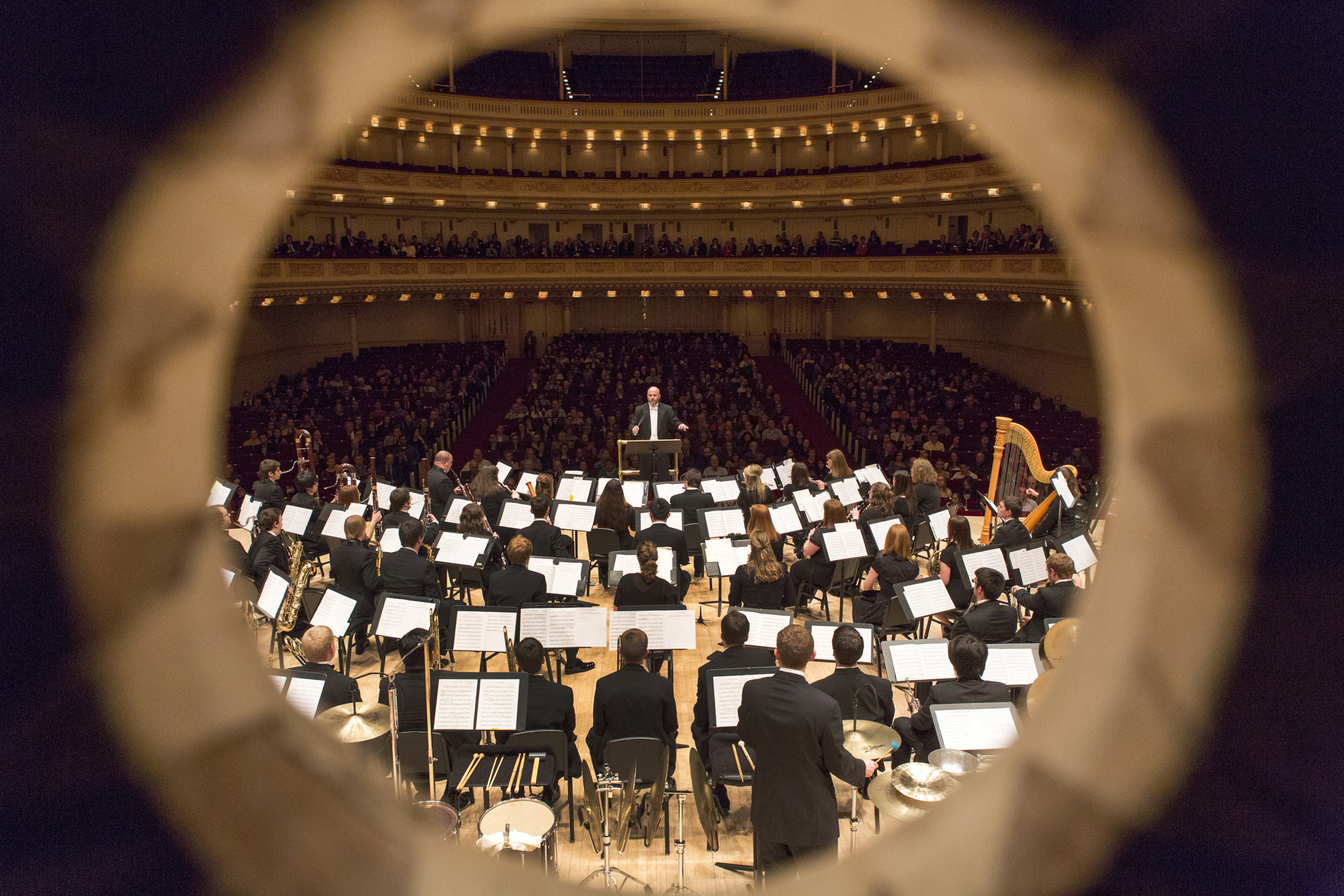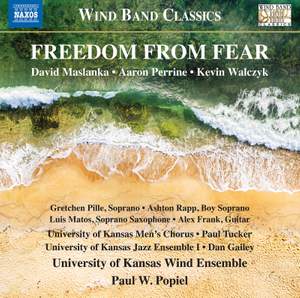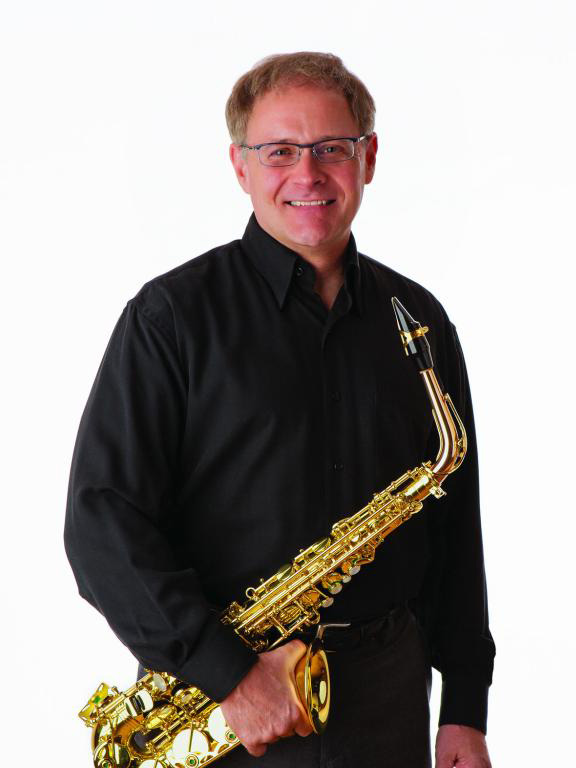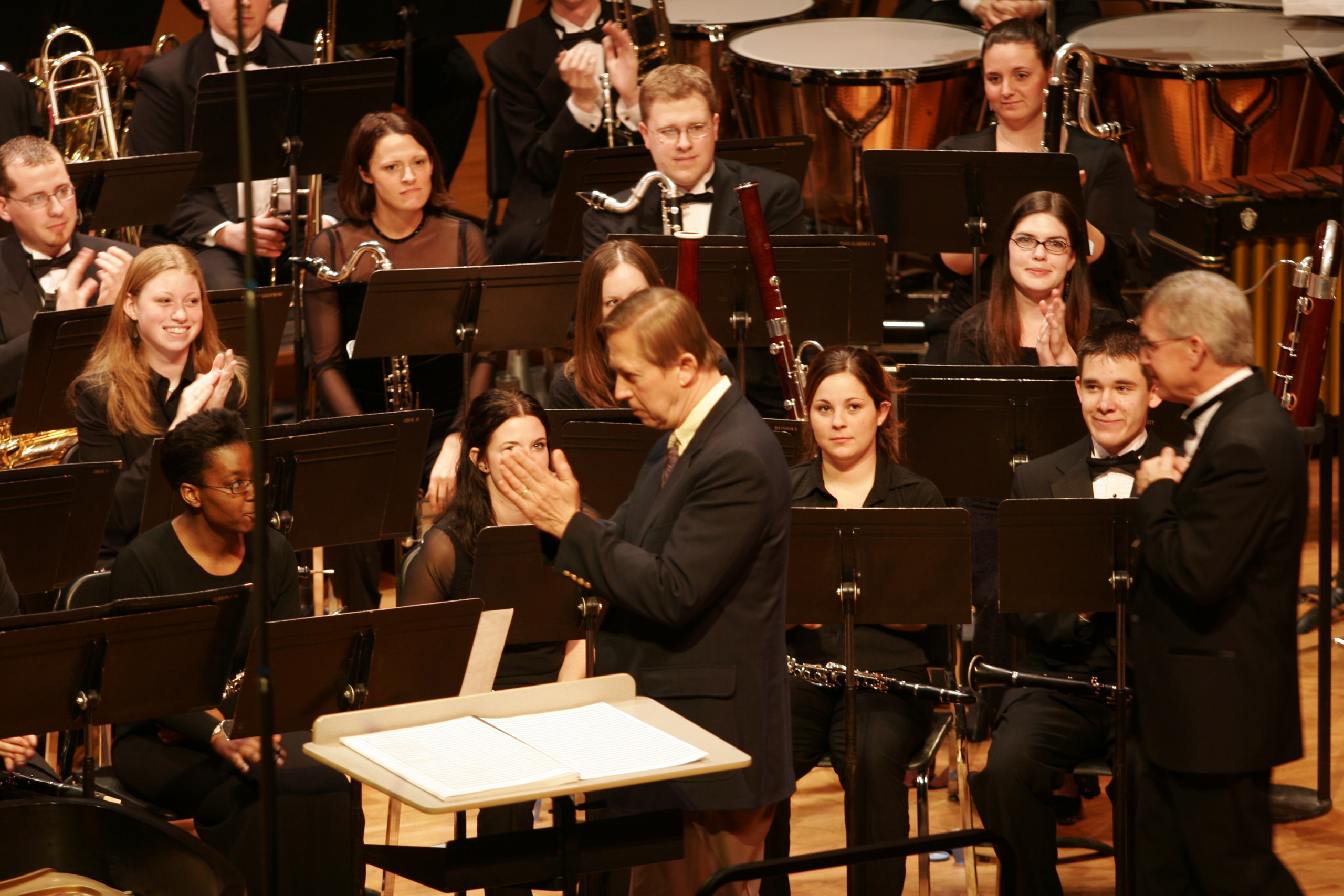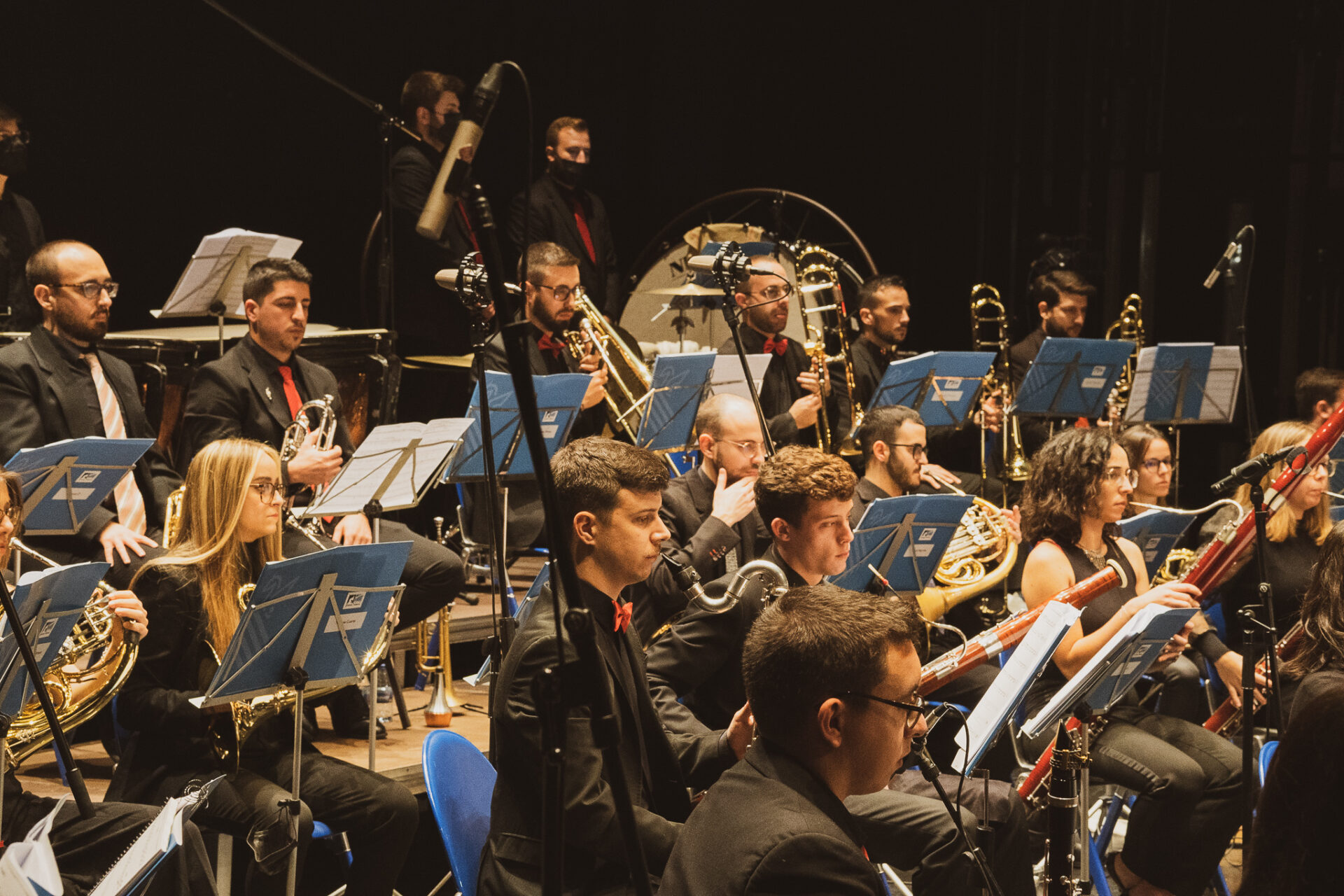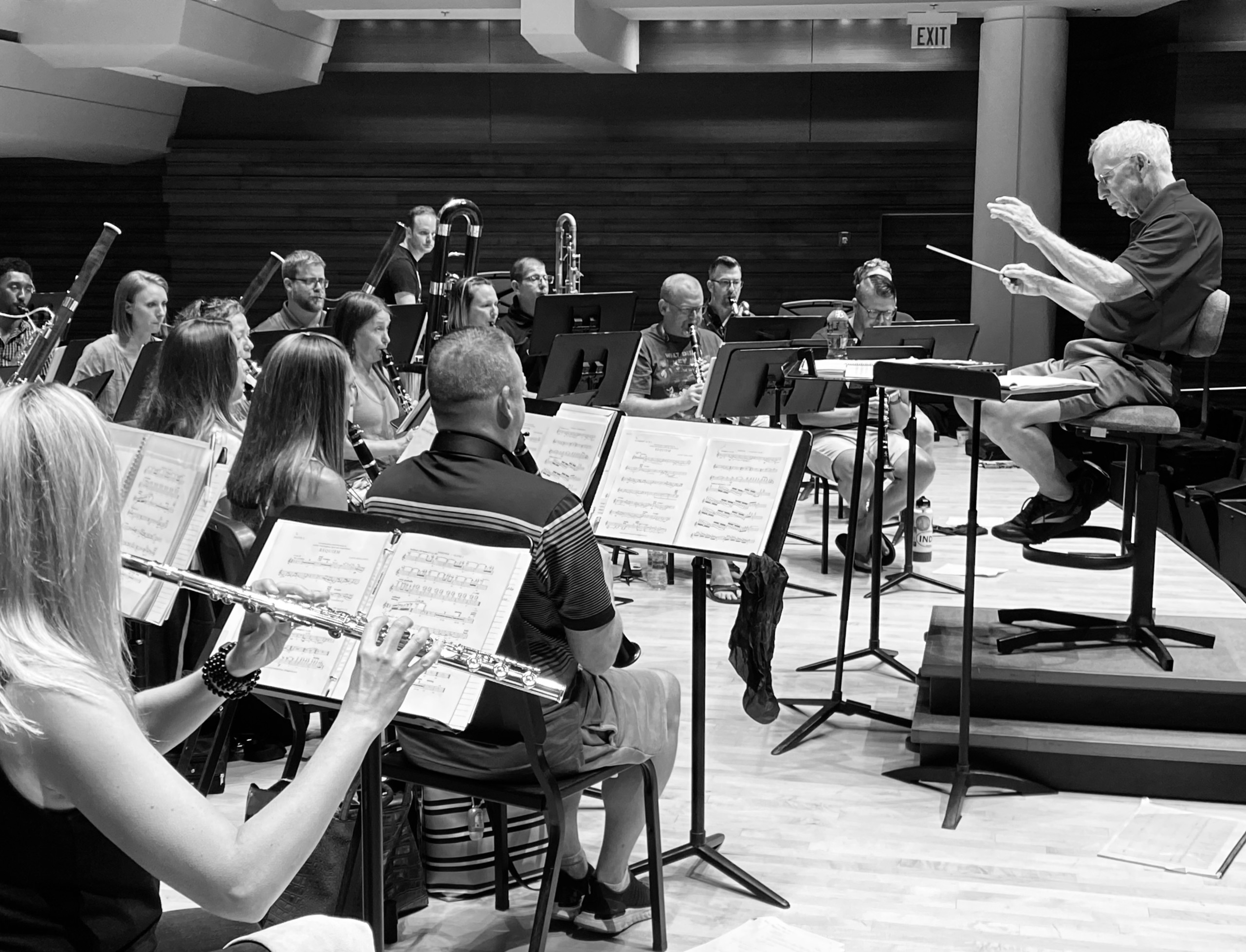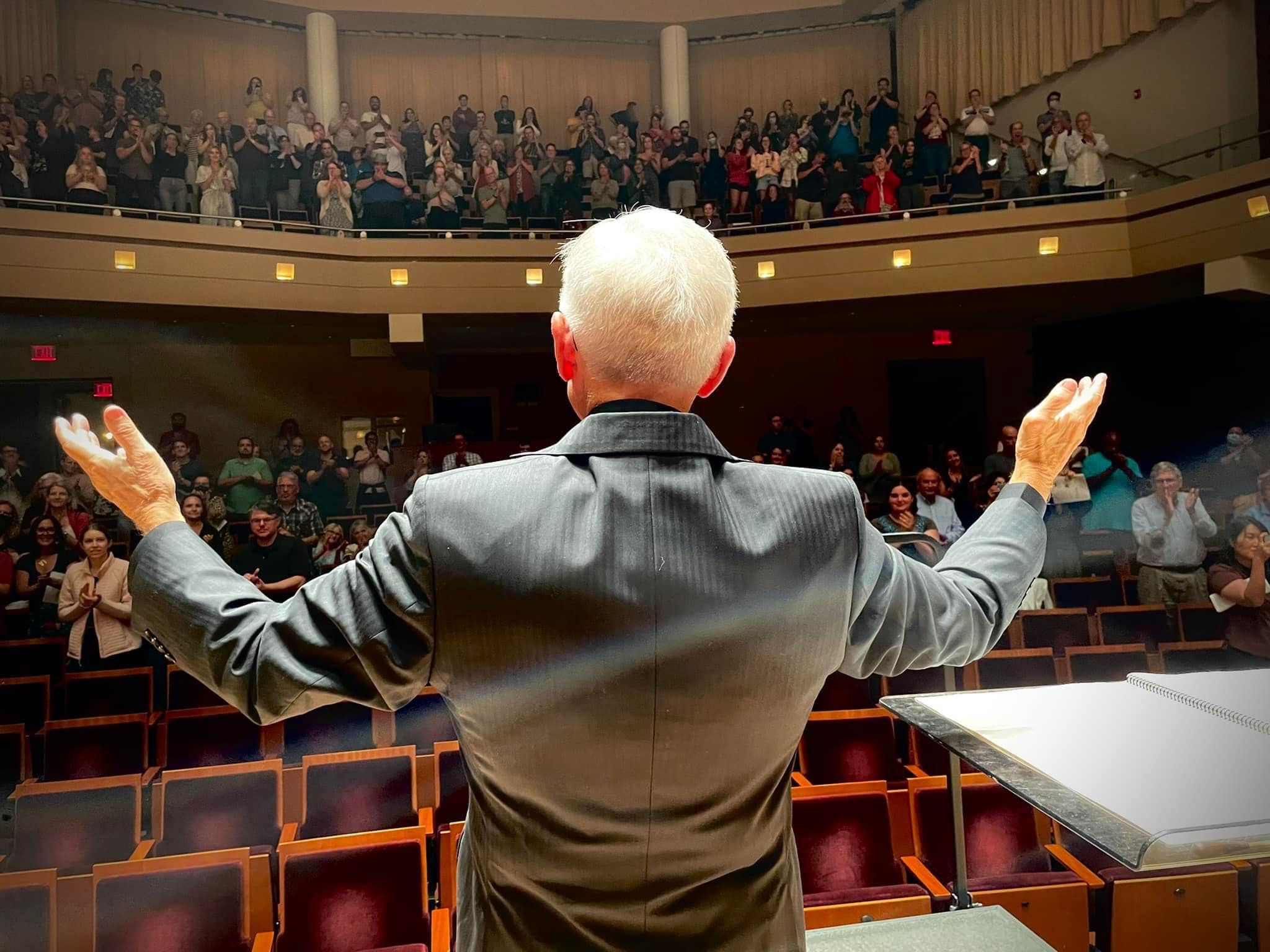Maslanka Weekly highlights excellent performances of David Maslanka’s music from around the web.
Fear is a real thing; we all have apprehension about the world we live in. For example, we may fear death, disease, the unknown, and catastrophe. But fear isn’t limited to large-scale pandemics or nuclear holocaust. Fear may also manifest itself in every-day matters: An upcoming deadline, a sick family member, no money to pay the rent, or even the fear of being alone. We all worry about the future and how we will cope with it. The music of David Maslanka gives us hope in times of uncertainty.
David’s music is all about life and renewal. It’s all about forgiveness and hope. It’s about facing times of desperation with a resolve to rise above the forces that hold us down.
David’s music is all about love and tenderness. It’s all about finding purpose and joy through misery and loss. It’s about the world coming together in one breath – in peace.
And so as life throws us curve-balls, conundrums, and even Coronaviruses, let us play David’s music with renewed vitality, optimism, and confidence. David taught us in person and through his music that we don’t have any reason to fear. In the end, it’s going to be alright.
This week, we feature two new performances of David’s music that reminds us to put hope over fear: Liberation and Give Us This Day.
Liberation
From Dr. Jacob Wallace’s original Program Note:
After a brief introduction with a fivefold chiming of bells, the chant begins in earnest. Dr. Maslanka retains an element of performance practice within the Gregorian chant by using a host of mixed and asymmetric meters during the singing, imitating the free neumatic style present in the original. This chant is presented over the course of the work in three major sections, sung by the ensemble in unison octaves and delineating the larger formal structure of both the source text and the musical events, which mimic the contextual meaning of the words. For instance, the phrase, “Dum veneris judicare sæculum per ignem” (“When thou shalt come to judge the world by fire”), immediately precedes an upward scalar rippling in the woodwinds that becomes sequentially more intense as it repeats, like the flickering of flames consuming an object. Brash fanfares then exclaim the implied fearfulness and wrath.
The first of two interludes takes some of these fanfare motives and develops them joyfully, with robust rhythmic energy in statements by the oboe, soprano saxophone, and flute, but this eventually dissipates into the trembling of “Tremens factus….” In this second section, as the ensemble resumes the text, more of the instrumentalists are drawn to join and imitate their chanting (the notable outlier being the trumpets, who bark out an angrily dissonant interjection accompanying the words “calamitatis et miseriæ” (“calamity and misery”). The repetition of “Dum veneris” is not explicitly sung, but implied through the continuing chant-like melody of the tutti winds before the flames take hold once more. The final section mourns, but with a sense of tranquility. The texture here is sparsely barren with the orchestration of the coda stripped down to two quartets (the first: flute, alto flute, clarinet, and bass clarinet; the second: alto saxophone, contrabass, piano, and vibraphone). This ending shows true hopefulness, with brief recollections of the earlier vitality serving as a nostalgic remembrance of the deceased.
Watch below as Paul W. Popiel leads the University of Kansas Wind Ensemble in a thrilling performance of this music.
More info
- Paul W. Popiel
- University of Kansas Wind Ensemble
- Liberation @ davidmaslanka.com
Click on the image below to purchase your own recording Liberation on the CD Freedom From Fear.
Give Us This Day
From David Maslanka’s original Program Note:
The words “Give us this day” are, of course, from the Lord’s Prayer, but the inspiration for this music is Buddhist. I have recently read a book by the Vietnamese Bhuddist monk Thich Nhat Hahn (pronounced “Tick Nat Hahn”) entitled For a Future to be Possible. His premise is that a future for the planet is only possible if individuals become deeply mindful of themselves, deeply connected to who they really are. While this is not a new idea, and something that is an ongoing struggle for everyone, in my estimation it is the issue for world peace. For me, writing music, and working with people to perform music, are two of those points of deep mindfulness.
Music makes the connection to reality, and by reality I mean a true awakeness and awareness. Give Us This Day gives us this very moment of awakeness and awareness so that we can build a future in the face of a most dangerous and difficult time.
I chose the subtitle, “Short Symphony for Wind Ensemble,” because the music is not programmatic in nature. It has a full-blown symphonic character, even though there are only two movements. The music of the slower first movement is deeply searching, while that of the highly energized second movement is at times both joyful and sternly sober. The piece ends with a modal setting of the choral melody “Vater Unser in Himmelreich” (Our Father in Heaven) – No. 110 from the 371 four-part chorales by Johann Sebastian Bach.
Watch below as Pietro Sarno leads the Bläserphilharmonie OWL in a spectacular performance of this music: Movement I. Moderately slow
Movement II. Very Fast
More info
- Pietro Sarno
- Bläserphilharmonie OWL
- Give Us This Day @ davidmaslanka.com
We would love to hear from you! If you know of any outstanding performances of David Maslanka’s music on the web, please email us at maslankaweekly@maslanka.org.
